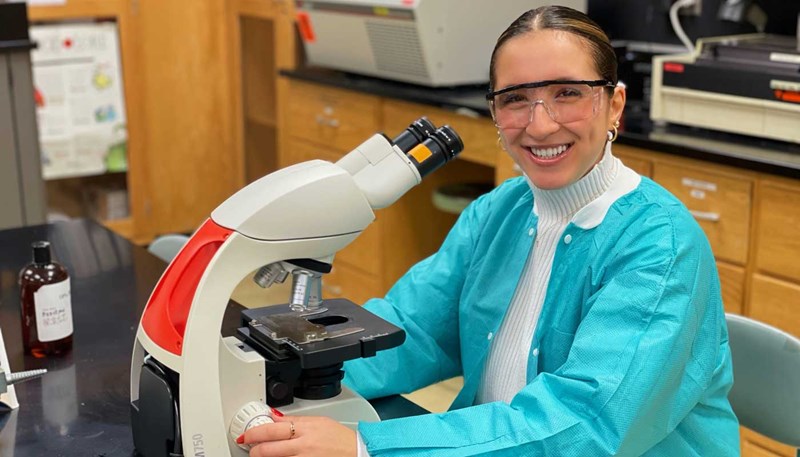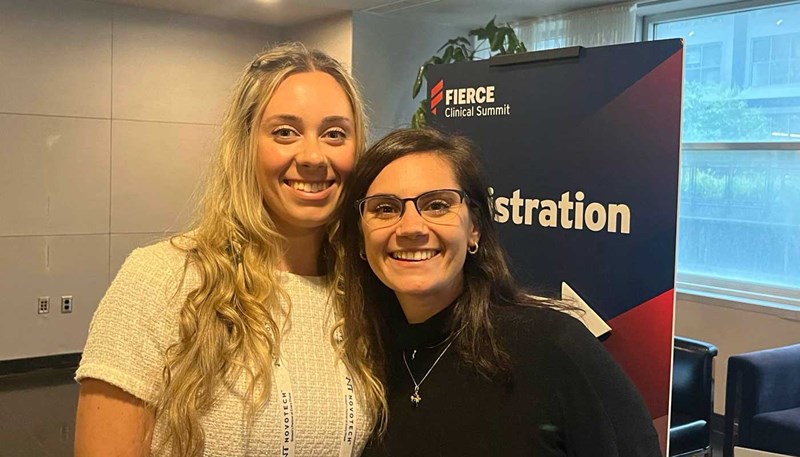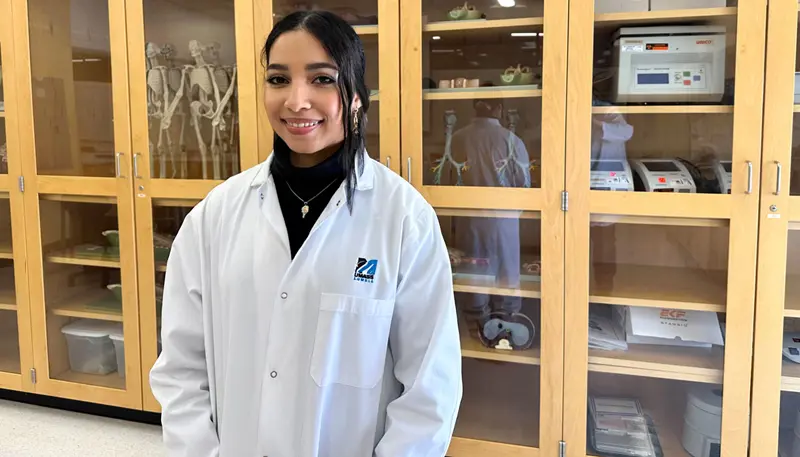Overview
The Doctorate in Pharmaceutical Sciences program at UMass Lowell will prepare students for academic careers, research careers and upper-level executive positions in both public and private institutions. Students will develop relevant, interdisciplinary research skills by applying work to current and future pharmaceutical problems and challenges.
The curriculum of the Pharmaceutical Sciences Ph.D. program is geared toward the development and evaluation of new drug therapies, and research on drug modalities, drug delivery, drug metabolism and pharmaceutical analysis.
Students are expected, early in their program, to identify a research area and, with guidance from their faculty adviser, develop a plan of research supporting this interest. Students will study the scientific framework of their specialty area. They will master highly technical, cutting-edge research methodologies appropriate to their respective specialties and responsive to the latest research findings and pharmaceutical issues.
Graduates of the Ph.D. program in Pharmaceutical Sciences will be able to:
- Conduct high-quality research Lead and partner effectively in research initiatives with other interested stakeholders
- Disseminate research findings through publication and conference participation
- Serve as worldwide “ambassadors” for the UMass system
- Demonstrate unparalleled ethical perspective on research issues and approaches
For questions about the program please reach out by email to: PharmSci_Grad@uml.edu.
Admissions & Degree Requirements
Students from the MS program with a cumulative GPA of a 3.500 or greater may apply to the PhD program and, if accepted, proceed with advanced standing into the PhD program and will be eligible to take the qualifying exam, which must be successfully completed within one year of acceptance. External applicants to the Ph.D. program will be accepted if they have an MS degree in Pharmaceutical Sciences with a cumulative GPA of 3.500 or greater from another college or university, but may be required to take any additional core curriculum courses they have not previously taken.
Learn about admission requirements.
Curriculum
Upon completion of the core curriculum these students will be required to attempt the qualifying exam within six months and must successfully complete the qualifying exam within one year. Students in the Ph.D. program are also required to take a minimum of 12 more credits of Advanced Elective courses. Other Advanced Elective options may be added to this list or be approved by the Graduate Coordinator and the student’s Research Advisor.
The expectation is that full-time students will finish the program in two to three years after the successful completion of their qualifying exam. The Program Director and advisors in the Ph.D. program will guide graduate students through a full-time program of study. Full-time study is equivalent to 9 credit hours per semester.





